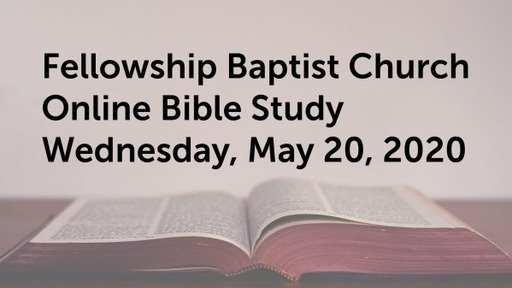Prayer of a Normal Man

Review of Prayer for Healing
God Answers the Prayers of the Righteous
God Answers the Prayers of the Assembly
James’s shift from elders to believers in general reminds us again that the power to heal is invested in prayer, not the elder. And while it is appropriate that those charged with the spiritual oversight of the community should be called to intercede for those seriously ill, James makes clear that all believers have the privilege and responsibility to pray for healing
God Answers the Prayers of the Normal Person
James bolsters his claim about the impact the effective prayer of a righteous person can have by offering an example from the Old Testament. In contrast to holding up the prophets as an example of endurance in verse 10, James portrays Elijah in verse 17 as a person just like us.
“Prayed earnestly” is a good translation of the Semitic cognate construction, which literally rendered would read “prayed with prayer.” The situation James describes is recorded in 1 Kings 17–18. God had proclaimed through Elijah that a drought would afflict the land as a means of punishing Ahab and Israel for their idolatry. Although the OT does not state that Elijah prayed for the drought, 1 Kgs. 18:42 does picture him praying for the drought to end, and it is a legitimate inference to think that he prayed for its onset also.
God Answers the Prayers of the Mundane
Prayer is dependent on a powerful God not a superhuman person.
Prayer requires persistence and patience not the perfect words or surroundings
One obviously cannot tell if a prayer that it not rain has been answered until a lengthy period of drought has occurred (1 Ki 17:1). So, too, believers’ prayers may often require persistence and patience.
Prayer involves faith that endures beyond an initial moment.
With this prayer for rain, Elijah had to persevere and not doubt, waiting for his servant to go seven times to look toward the sea before he saw even a cloud the size of a person’s hand (18:41–46)